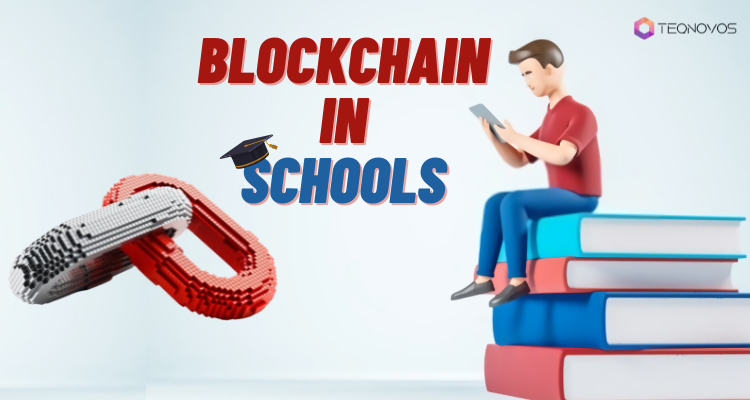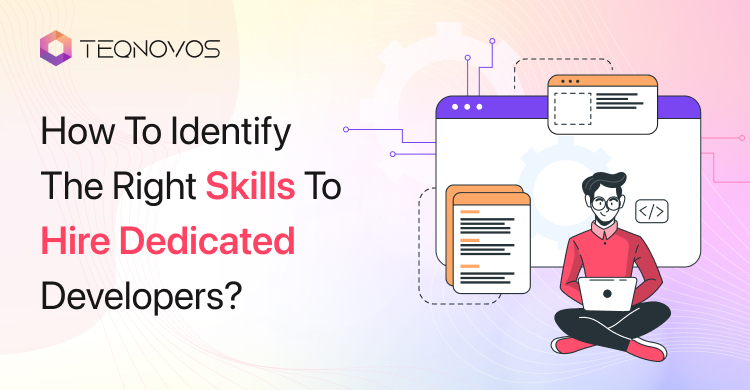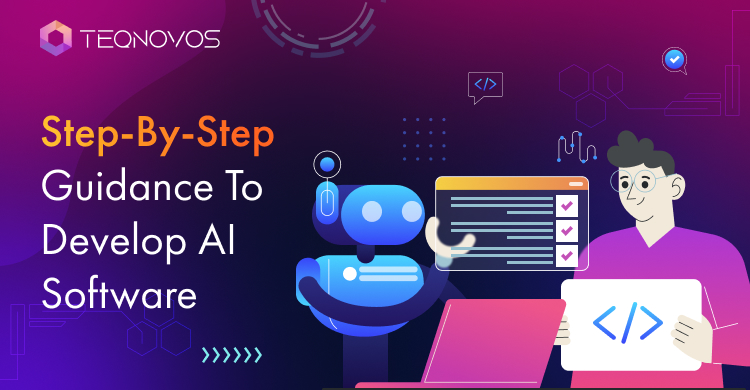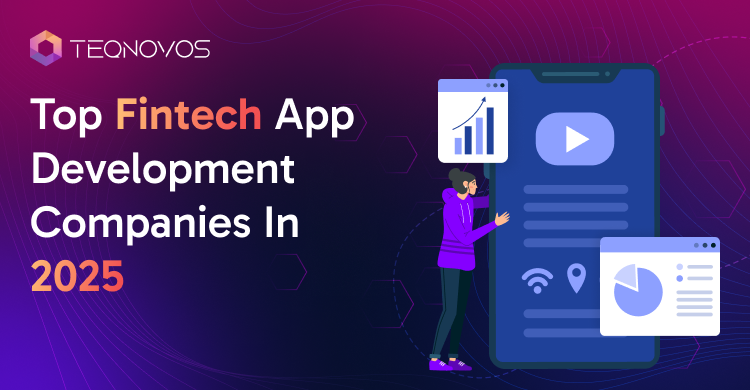How Blockchain Can be Used in Schools?
Blockchain is probably among the most influential technologies of the 21st century. At present, blockchain has become a household name, all thanks to its popular applications like cryptocurrencies, NFTs, and dApps. Blockchain has marked its presence across several industries, and the education industry is one among them.
While blockchain can play a special role in the improvement of the education system, it is important for educational institutions to understand the advantages of blockchain.
Currently, there are several challenges that educational institutions face in their pursuit to offer a better learning experience to students and become more efficient. With various blockchain solutions, it is possible to eliminate such challenges while ensuring better execution of administrative tasks.
Here, we will discuss how blockchain can help schools to ramp up the quality of their services. To start with, let’s get a quick overview of blockchain technology.
What Exactly is Blockchain?
In the most basic terms, Blockchain acts as a database that stores data securely. It is a distributed ledger that uses a peer-to-peer network to verify and record transactions.
One key thing to note here is that Blockchain is a decentralized system, which means that there is no central entity that controls the functionality of a blockchain platform.
Unlike a centralized ledger or database, a blockchain system has multiple copies of the ledger stored by different nodes. A node in a blockchain is a computer system, and it helps to maintain the integrity and ensure the proper functioning of the blockchain.
Whenever a new transaction is made on the blockchain, the nodes make use of a consensus algorithm to verify the transaction and record it on the ledger. Also, it is the consensus algorithm that prevents data tampering. Blockchain technology relies on cryptographic hashing functions to encrypt and decrypt data.
Blockchain also supports smart contracts; they are a type of digital contract. A smart contract is a program that gets executed when certain conditions are met. Smart contracts allow the automation of tasks and find applications in almost all industries.
Primary Challenges Faced by Schools
Despite the emergence of several technologies and digital transformation of the education industry, there are still several challenges faced by educational institutions, including schools. Below are some of the most notable challenges faced by schools all across the globe.
-
Student Identity Management
Many schools use manual and outdated techniques for identity management. Also, each school uses a different identity management system.
Due to this, every time a student gets admission to a different school, the school needs to add the student’s identity details manually into their system. There is no way for a school to get the personal information of the student directly from the records maintained by the previous school.
-
Records Keeping
Record keeping through conventional methods is time-consuming and tiresome. Managing the academic records of students on paper is counterproductive. Also, the biggest drawback of keeping student records on paper is that paper is susceptible to wear and tear. Thus, the loss of student records becomes a possibility.
Additionally, it is difficult to retrieve the academic records of a student quickly. An administrator may have to spend a significant amount of time just to pull the records of a student from the archives.
-
Student Performance Tracking
Tracking the performance of each student in a class is a difficult task. However, without knowing how each student is performing, teachers can’t devise effective strategies to improve the learning experience for their students.
Usually, most schools rely on traditional methods to track student performance. These methods rely on a lot of paperwork, and this makes it difficult to gather the data required to analyze the performance of students.
-
Transparency Between Students and Teachers
Another significant challenge faced by students and teachers alike with the existing education system is the lack of transparency. For instance, teachers find it difficult to ensure that each student completes their tasks in accordance with some defined regulations and on time. Similarly, students may find it difficult to ensure that the grades they receive are completely based on their performance and free from any bias.
How to Use Blockchain in Schools?
School administrators need to understand how blockchain can play a vital role in the positive transformation of the education system. In general, blockchain can help to overcome various challenges the education industry has been facing for several years.
Here are some use cases of blockchain in schools.
1. Identity Verification and Management
With blockchain, it becomes possible to put a digital system in place to manage the identities of students. It is quite easy to store the personal information of students on a blockchain. Also, the information stored is secure against unauthorized modifications.
The best thing about having a blockchain-powered identity management system is that schools can interchange student information without any hassle. Storing student identity information over a public blockchain makes it accessible to everyone. Instead of creating a new database for each student, schools can readily access all the academic details from the blockchain, of course, with the permission of concerned students.
2. Student Credentials
Similar to identity, schools can leverage blockchain to store students’ credentials securely. The biggest benefit of issuing and storing student credentials on a blockchain is that it will help to prevent the forgery of fake credentials.
Blockchain not only stores data but also the source of the data. Having information about the source will make it easy to identify the issuer of a document or credential.
Another advantage of migrating student credentials over a blockchain is improved accessibility. Students can readily access their credentials and even share them with others. It is quite easy to store and share digital certificates. Students do not have to wait for days to get their credentials published.
3. Fee Payments
One of the biggest advantages of using blockchain technology in schools is that it can streamline the fee payment process. The conventional methods used for fee payments are not only inefficient but also costly.
Schools usually have to partner with banks to receive and process payments made by students. These banks act as intermediaries and charge some fees for their services.
By making use of blockchain-based payment systems, schools no longer have to rely on intermediaries. This will help schools to bring down their overall costs.
As blockchain allows the processing of international transactions or cross-border payments in minutes, international students do not have to wait several days to get confirmation of their fee deposits.
4. Assignments
By using smart contracts, schools can make students accountable for assignments. By deploying smart contracts on a blockchain, teachers can set the due date, submission guidelines, and assignment grading criteria.
The grades that students receive for each assignment will get stored securely on the blockchain. Moreover, students can automatically get access to a new course or new assignment or get a certificate of completion after finishing an assignment.
5. eTranscript Issuance
The traditional process for obtaining transcripts is complex and time-consuming. Students first need to apply to get the desired transcript, the concerned parties will then verify the credentials before issuing the transcript. Also, many schools issue hard copies of the transcripts. This whole process usually takes several days to complete.
With the help of blockchain, it is possible to bring down the processing time for issuing transcripts from days to a few hours. Moreover, students will receive transcripts in digital form, known as eTranscripts. Students can share their eTranscripts with others much more easily compared to hard copies.
6. Learn to Earn (Incentivized Learning)
Rewarding students for learning new things and concepts can help them perform better in academics. Blockchain in school to develop systems that automatically reward students whenever they achieve milestones.
For instance, a student may be awarded access to a special webinar for getting good grades on an assignment. Alternatively, students may receive a certain amount of cryptocurrencies in their crypto wallet.
With the help of blockchain-based learning systems that offer certain incentives to students for making progress, schools can make the learning experience more exciting for students.
To create incentive programs for students, the use of smart contracts becomes imperative. By defining the conditions that students must meet to become eligible for getting incentives through smart contracts, it becomes possible to automate incentive programs.
Get Custom Blockchain Solutions for Your School
Whether you already have an idea of a blockchain solution or you want to know how exactly blockchain can benefit your school, you need to consult a popular blockchain development firm.
Teqnovos is among the most prominent blockchain development companies that offer a wide array of services. You can get in touch with our blockchain experts to get professional advice on blockchain implementation in your school.
We not only create solutions for existing blockchains, like Ethereum, Solana, Hyperledger, Corda, and Tron but can also develop both private and public blockchain platforms from scratch.
In a Nutshell
Blockchain is an innovative technology to empower the education industry. Schools, among other educational institutions, can leverage blockchain technology to become more efficient and offer better education to students.
Most schools today rely on traditional methods for teaching students and performing day-to-day administrative tasks. However, with the implementation of blockchain technology, schools can experience a next-level digital transformation.
With blockchain offering a highly secure way to store and access data, schools can manage student records, monitor performance, and issue academic transcripts efficiently. There are several use cases of blockchain in schools and the most popular ones are mentioned above.
If you want to know how blockchain solutions can benefit your school, you may need to contact a leading blockchain development company. They will assess your requirements and assist you with the implementation of the most suitable blockchain solutions.
















